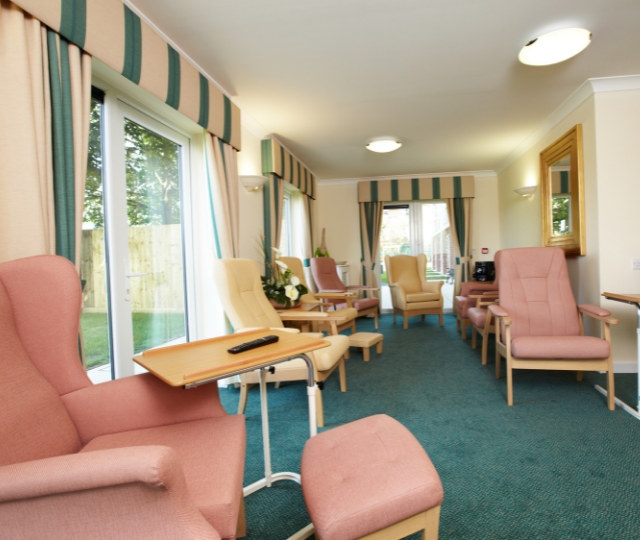A reportable incident is an event where a person in care has been injured, been adversely affected, or gone missing while under the care and supervision of the licensee.
Community Care Home Reportable Incident Form
Licensees are required to notify a medical health officer immediately if a person in care is involved in, or may have been involved in, a reportable incident.

Examples of reportable incidents include, but are not limited to, the following:
- Aggression between persons in care: by a person in care towards another person in care that causes an injury that requires first aid, emergency care by a medical practitioner or nurse practitioner, or transfer to a hospital
- Disease outbreak or occurrence: above the incident level that is normally expected
- Emergency restraint: any use of a restraint that is necessary to protect the person in care or others from imminent serious physical harm and is not agreed to under section 74 (when restraints may be used)
- Fall: a fall of such seriousness, experienced by a person in care, as to require emergency care by a medical practitioner or nurse practitioner, or transfer to a hospital
- Missing or wandering person: a person in care who is missing
- Service delivery problem: any condition or event that could reasonably be expected to impair the ability of the licensee or his or her employees to provide care, or that affects the health, safety or dignity of persons in care
For a complete list of reportable incidents, please refer to Schedule D of the Residential Care Regulation (which governs community care homes).
The staff who are involved in or who witnessed an incident should complete a report so that the details are reported first hand. The facility manager can review the report and provide additional details and follow-up actions prior to signing the report. If the manager completes the report, it is helpful to include staff notes regarding the incident to ensure all relevant details and contributing factors are included.
Include the following information on the incident report, to ensure that it provides the details needed for proper assessment.
- A description of the incident with as much descriptive detail as possible (who, what, when, where, how, why)
- Noting of the sequence of events that led to the incident and identify any factors that may have contributed
- A description of the strategies that were implemented to lessen the circumstances.
- A description of the immediate response steps that were taken as well as the safety measures, corrective and preventative actions that were put into place as a result
- Who you notified besides licensing
- The current status of the person(s) in care and what, if any, changes were made to their care plan
Licensees can submit incident reports to Licensing Direct using our direct reporting portal. The following tips will ensure your successful submission:
- Use Microsoft Edge, Google Chrome or Safari. We recommend avoiding the use of Internet Explorer because it may result in a submission error.
- If the form doesn’t submit, all areas of the form with a red asterisk are not complete. Even if there is data in the field, it may not have been entered in the correct format such as the date/time fields.
- Complete the form from top to bottom. Certain data elements towards the bottom of the form rely on mandatory information entered at the top of the form.
- To print/save your completed form, you must click Download at the bottom of the form before pressing Submit. If you receive an incomplete notification when submitting, download to print/save again prior to submission, to ensure the copy you have on file is complete.
Contact Licensing Direct if you have any questions. We are here to help.
A licensing officer investigates the incident report to assess the factors that led to the incident, as well as the appropriateness of the licensee’s response and corrective actions. The goal of this process is to review the licensee’s actions to determine whether there is a recurring pattern, and to prevent a similar occurrence in the future, if possible.
Licensees must also keep a log of minor, unexpected accidents and illnesses that do not require medical attention and are not reportable incidents. Section 88(a) of the Residential Care Regulation (which governs community care homes) requires this information to be kept on record and made available during inspections.


IH offers a range of services to help those who may have mental health, substance use or housing needs.
/stories/sharing-warmth-and-hope-ih-health-services-help-communities


Jayme helps ensure lived experiences are not just welcomed but embedded across Mental Health and Substance Use services at IH.
/stories/we-are-ih-coordinator-centers-peer-voices-care


As temperatures drop, it’s important to be aware of the health risks of cold. Here's what you can do to ensure you remain safe and healthy.
/stories/how-protect-yourself-and-others-when-temperature-drops


Heart disease is the number one killer of women worldwide and the leading cause of premature death in Canada. One in 3 women will be affected by heart disease.
/stories/how-women-experience-heart-disease-differently-men


Wavemakers is a free, groundbreaking virtual reality career-building program where post-secondary students can build skills and connect with employers like IH.
/stories/ih-helps-students-explore-careers-through-virtual-reality-program


Interior Health (IH) and our community partners offer mental health services for youth and adults. Our services are confidential and safe, and free of judgment
/stories/mental-health-services-youth-and-adults-interior
STAY CONNECTED
Receive news, alerts, public service announcements and articles right to your inbox.

